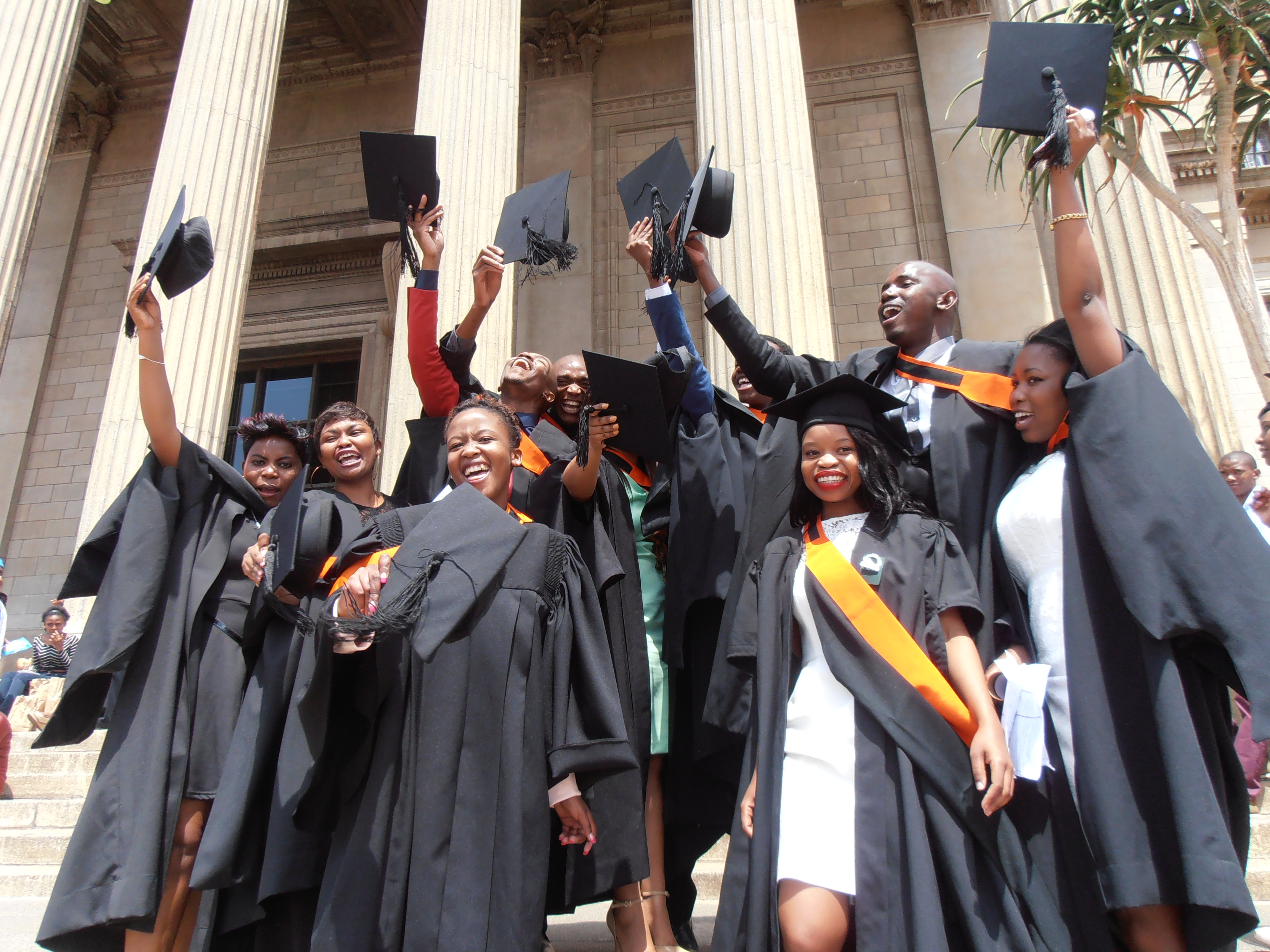After defying the odds and graduating high school, many African teens are faced with an unfortunate reality: There often isn’t a clear path to college. And without a university degree, it can be difficult for these young men and women to find good jobs that will lift them out of poverty and help them obtain the skills and confidence they need to improve their local communities and grow their economies.
Since 2007, the Diamond Empowerment Fund (D.E.F.) has contributed to bringing new opportunities to diamond communities by providing promising youth with access to higher education.
Founded by Russell Simmons and fellow leaders in the diamond and jewelry industry, this international non-profit organization has one mission: to help diamond communities become strong, stable, prosperous, and socially empowered.
When D.E.F. receives donations, it makes grants to three outstanding beneficiary organizations: Botswana Top Achievers, CIDA City Campus, and African Leadership Academy. Find out how these investments are helping to change lives.
Botswana Top Achievers
Through Botswana Top Achievers (BTA), established by the Ministry of Education in Botswana, high school scholars across the country are given opportunities to study the field of their choice at any college around the world through a scholarship. Upon graduation, students return to the country to contribute to its economic growth and diversification. For proof of the program’s success, look no further than 24-year-old Patience Osei.
Patience grew up poor in Gaborone, Botswana’s capital. When Patience was in high school, her mother was diagnosed with asthma, which meant she had to spend time in the intensive care unit. “They just didn’t have the equipment in the hospital that could help her,” says Patience. As a result, Patience’s mom suffered complications, underwent surgery and was on the verge of dying, but miraculously survived. Afterward, her recovery time was so long that she couldn’t go back to her job as a teacher for two years, which pushed the family deeper into poverty.
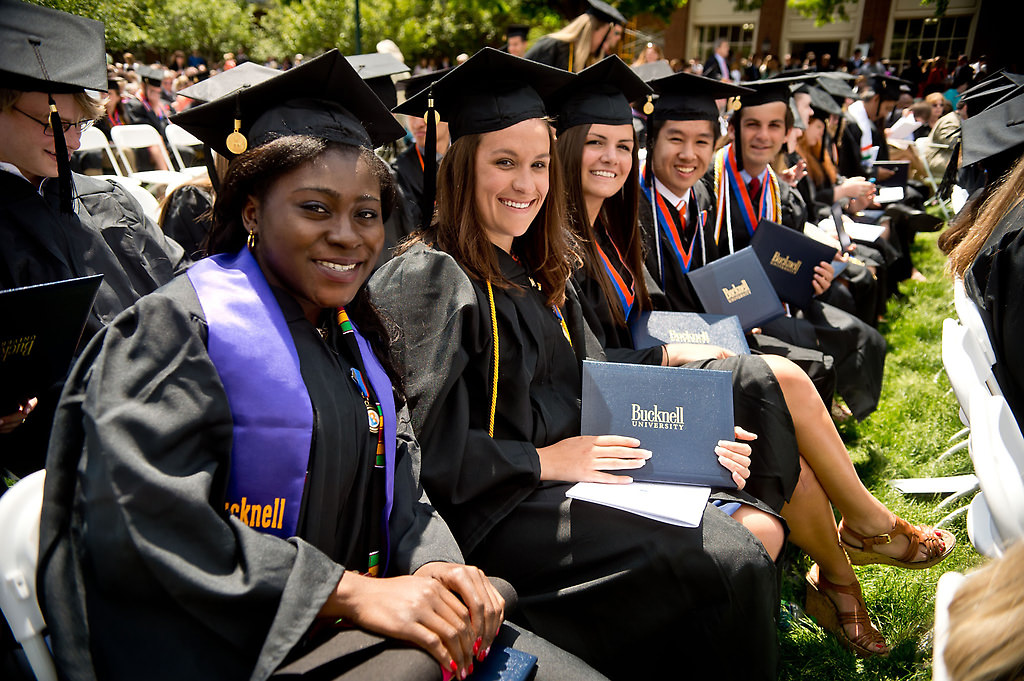
Watching her mom go through this traumatic experience fueled Patience’s desire to study biomedical engineering—a degree she’d need to create cutting edge medical devices that could help people like her mother.
Since there were no places to study biomedical engineering in Africa, Patience’s parents spent their remaining life savings to send her to Bucknell University in Lewisburg, Pennsylvania. But after one year, their money ran out and she planned to give up her dream and move home—that is, until she found out about the Botswana Top Achievers program.
Through BTA, Patience was awarded a full scholarship to both Bucknell University in Lewisburg, Pennsylvania, for undergraduate studies and Johns Hopkins University in Baltimore, Maryland, for graduate studies. ” Education in Botswana is very limited,” says Patience. “This scholarship transformed my life.”
Bucknell-funded trips to countries such as the Dominican Republic, Nicaragua, Brazil and Paraguay helped Patience see how biomedical engineering is used all over the world. “One thing that struck a chord with me is that Africa is so much farther behind anywhere else I’ve been to in my travels,” she says “It helped me to realize that I need to go back and help in whichever way I can.”
As a current Johns Hopkins graduate student, Patience helps create prototypes of medical devices; she’s currently working on one that can train obstetricians and midwives in Nepal to perform safe deliveries in complicated situations. Botswana, she says, is in dire need of acquiring more laparoscopic surgical devices. These can help doctors perform minimally invasive procedures that lower risk of infection, leave fewer scars and lead to less recovery time.
Perhaps someday she will help bridge that gap. “This education is my stepping stone,” she says.
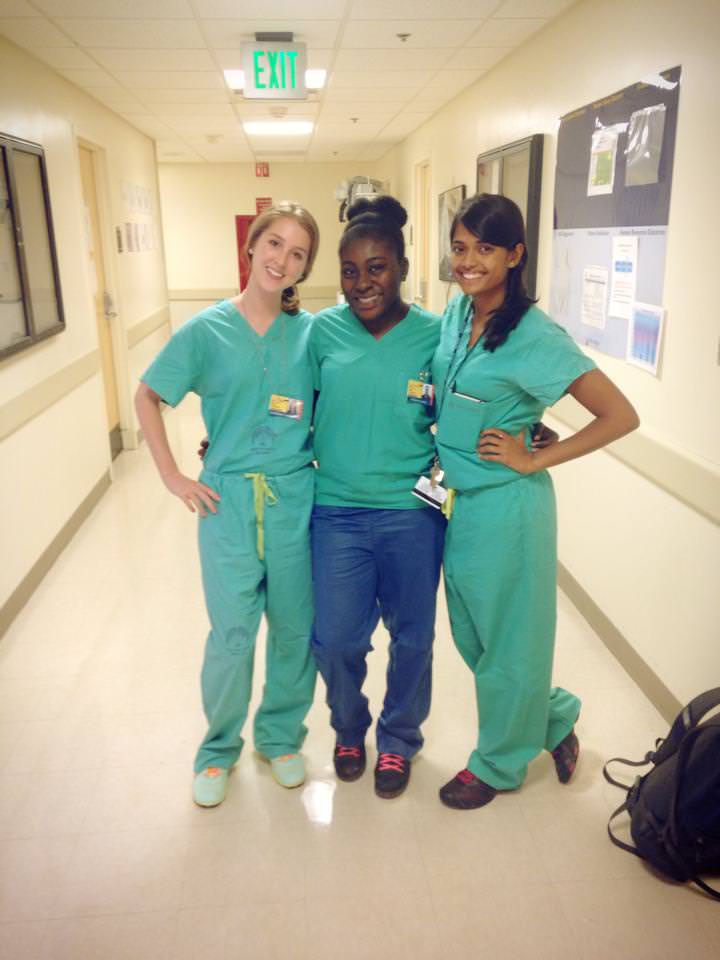
African Leadership Academy
African Leadership Academy (ALA) is a two-year pre-university program based in Johannesburg, South Africa. High school graduates coming from all 54 African countries who have an entrepreneurial spirit, perform community service, and demonstrate leadership potential are chosen to attend. Through additional scholarships these ALA graduates then attend universities around the world. Upon graduation, these new leaders return to the continent to contribute to its growth.
One standout ALA alumnus is 19-year-old Fortune Munyaradzi Zindi. Before coming to ALA, studying in his home country of Zimbabwe was sometimes a struggle for Fortune because rainstorms would cause blackouts and he’d have to read by flashlight or candlelight at night, which hurt his eyes.
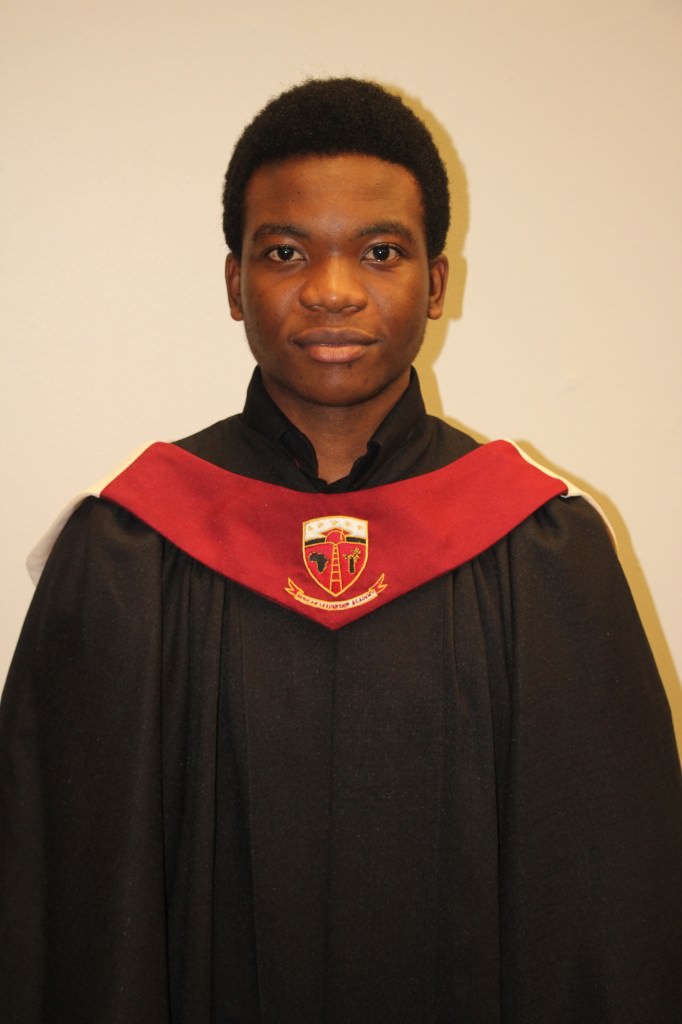
“I felt frustrated,” he says “My boarding school eventually acquired a high-power generator that was able to light up the entire campus. However, sometimes it was difficult for the school to buy the fuel needed to run the generator.” Fortune dreamed that someday he would help solve the energy crisis.
When he got into ALA, he realized that his dream may eventually become a reality. “Knowing that I was going to be part of such a great thing was really satisfying. I was excited,” he says.
At ALA, Fortune learned how to collaborate. “I came to see that even if I studied economics or business, rather than engineering, I could work with people with technical skills and we could address the problem together,” he says.
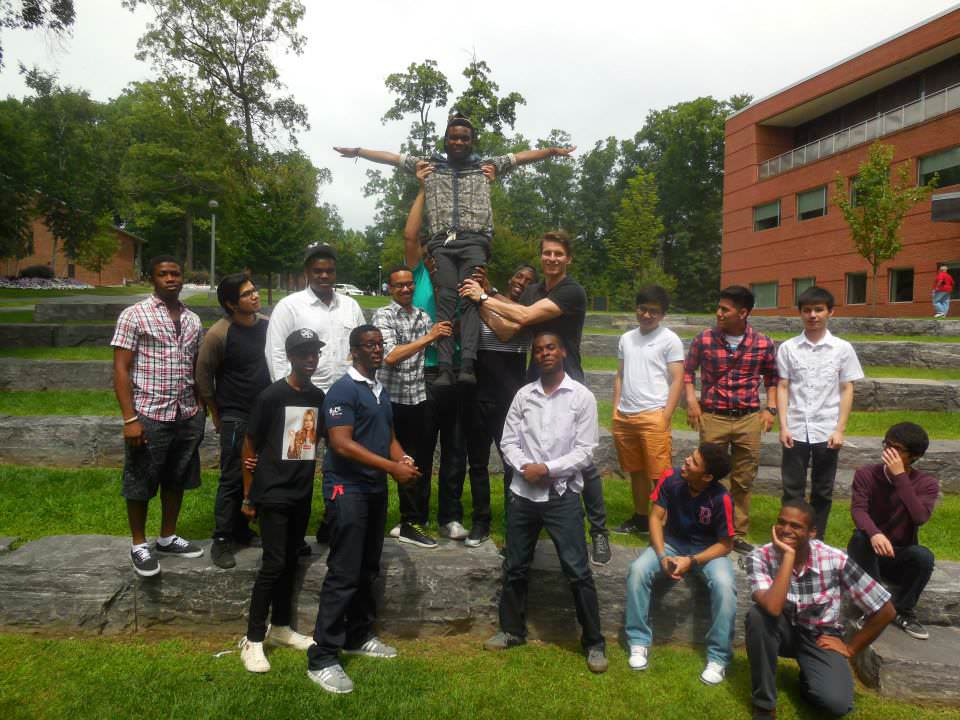
ALA was a launching pad that helped Fortune get into Skidmore College in Saratoga Springs, New York. “About 36 percent of the school now uses renewable and eco-friendly sources of energy for heating, cooling, and cooking. Offices, restrooms, and classrooms use occupancy-sensor technology that ensures energy is only used when needed,” he says. That’s exactly the type of technology that Fortune wants to bring to Zimbabwe someday.
“I hope the Diamond Empowerment Fund can continue supporting and developing students who then can translate the education they have received into meaningful action that ultimately leads to positive change,” he says. “Without ALA, my life wouldn’t have been as promising as it is now,” he says.
CIDA City Campus
23-year-old Thabo Xawuka of South Africa first found out about CIDA City Campus—South Africa’s first virtually free, four-year business college—through a mentor.
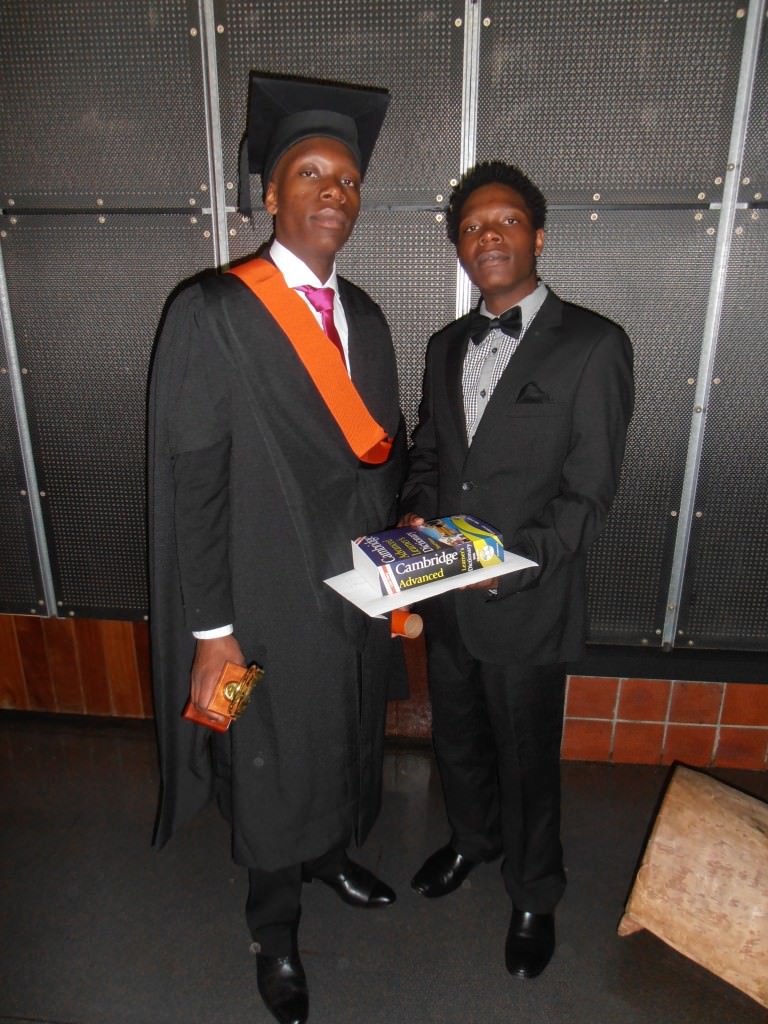
In 11th grade, his high school paired him with a banker, who encouraged him to apply. “He told me that studying business administration at CIDA would teach me about accounting, business, investment, and more, which would allow me to get a job at any financial institution,” Thabo says.
At CIDA, Thabo learned how to speak confidently in front of others. Each week, he emceed an event called Sunday Soul Session, where people would showcase their talents through poetry, singing, and dancing. “I discovered that I’m not really afraid of people. At first, I would hold my ideas back and not say anything. But now I can really express myself. It helped me a lot in school with presentations,” he says.
Thabo is determined to help reduce unemployment in his community in the future by starting his own business. “By employing people in my community, I’ll help raise the standard of living and I’ll be giving hope to more people,” he says. “I also think I can help market products to certain companies so they can buy from certain farms. I can teach businesses in my community how to do bookkeeping so they can keep track of the profits they make.” Thabo says that none of this would be possible without a CIDA education. “It’s like an African’s dream come true.”
To learn more about this and other diamond industry initiatives helping communities around the world, visit the Diamond Empowerment Fund.

